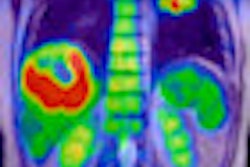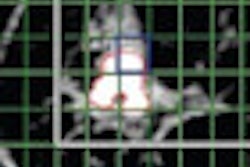Dear AuntMinnie Member,
Radiology professionals haven't been quite sure what to make of the 2009 law passed in Connecticut that requires patients to be notified of their breast density. While some radiologists have opposed the legislation as an unwarranted intrusion into their practice, others see the benefits of supporting an effort to address the challenges of using x-ray mammography on women with dense breast tissue.
Radiologists in Connecticut have found that the law has wrought major changes in the way they practice -- but not all of them are negative. On the downside, the law has led to a spike in the use of breast ultrasound, which can be time intensive and cause workflow issues. But on the positive side, the use of breast ultrasound on a more routine basis has led to an increase in the breast cancer detection rate.
With news this week that Missouri will mull over similar breast density legislation early next year, the Connecticut experience is particularly topical. Learn more by clicking here, or visit our Women's Imaging Digital Community at women.auntminnie.com.
Brachy experts refute APBI study
In other news, a major brouhaha erupted this month in radiation oncology from a study presented at the San Antonio Breast Cancer Symposium that linked accelerated partial-breast irradiation (APBI) brachytherapy with higher rates of complications and mastectomies, compared with whole-breast irradiation.
Proponents of APBI haven't taken the news lying down, mounting a counteroffensive to highlight what they see as flaws in the study. They've criticized its use of Medicare billing data rather than actual clinical outcomes, and the group pointed out that it's based on data that in some cases are as much as 10 years old.
APBI advocates are fearful that fallout from the study could lead some breast cancer patients to avoid participating in clinical trials of the technology, which could create complications of its own for more rigorous studies currently under way to evaluate APBI brachytherapy. Learn more by clicking here.
In related news, read about a study published last week that found geographic variations in APBI brachytherapy adoption rates across the U.S. -- variations that the authors said couldn't be explained by patient demographics or clinical issues. Instead, at least one editorialist believes the data could indicate that APBI brachytherapy is being adopted in the absence of rigorous clinical studies on its utility.
Read about this study by clicking here, or visit the Radiation Oncology Digital Community at radiation.auntminnie.com.



















